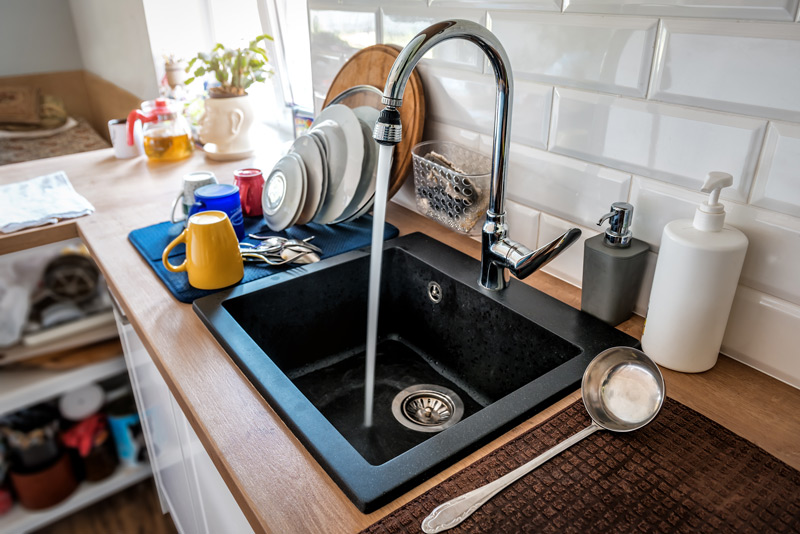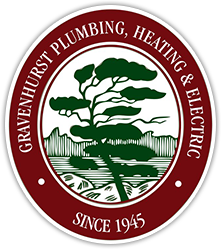Click here to Subscribe to Chips Tips Blog
Should You Invest in a Tank or Tankless Water Heater?

Should You Invest in a Tank or Tankless Water Heater?
Hot water is essential regardless of the season. While it’s easy to take for granted, you always know the second you run out!
Suddenly your tap water runs cold, and you’re rushing to finish the task at hand. In many unfortunate cases, you’re left in a frigid shower - the worst!
Water heaters are a home staple - necessary for your well-being and everyday life.
You use them daily for showers, dishwashers, taps, and laundry machines. They help you cook, clean, wash your hands and more.
In fact, hot water improves your efficiency, sustainability and hygiene!
Energy Efficiency
Hot water brings about better, faster cleaning results.
If you’ve ever tried to get grease off a plate with cold water, you know how futile your efforts were.
Hot water actually reduces cleaning times by about 40-70%!
Sustainability
Sustainability goes hand in hand with efficiency.
Because hot water allows you to finish the job faster, there’s less resource consumption.
For every 264 gallons of cold water used, a hot water solution can save 106 gallons!
Sanitation
Hot water is an incredibly convenient tool in your home, but it’s also a key factor in battling bacteria.
Did you know that cleaning with cold water does nothing to lower bacteria count?
In contrast, hot water at 140 degrees Fahrenheit can reduce bacteria colonies by 90%!
It’s obvious how vital hot water is for our daily life. But which water heater is best for your family’s needs - a storage tank or tankless?
We get this question a lot. After all, the answer isn’t the same for everyone.
Keep reading to find out which unit you should choose!
Storage Tank vs. Tankless Water Heaters
There are lots of opinions on which unit is better. But the real answer depends largely on your home and lifestyle needs.
Before we get into the pros and cons of both systems, let’s dive into how each one works.
How They Work
How Does a Tank Water Heater Work?
Many methods of water heating existed before the invention of electrical water heating systems. For example, people used to heat water over an open fire or stovetop. Or they found a hot spring!
It wasn’t until 1889 that Edwin Rudd invested in the first actual water heater. It used a storage tank, much like the tank systems used today.
A tank water heater heats water in a storage tank 24/7. This constant heating means that there's always a tank full of hot water ready for you!
But once that hot water runs out, you have to wait until it refills before using more.
How Does a Tankless Water Heater Work?
Tankless water heaters weren’t invented until 1960. These systems don’t store heated water but rather heat it on demand.
When you turn the tap to access hot water, this system heats the water as it comes to you.
With this system, you don’t have to worry about running out of hot water. But the water heater’s output limit can limit the flow rate.
Note: The flow rate of a tankless water heater depends on the unit type. Be sure to ask your GPHE plumbing tech about our options!
Storage Tank Heater: Pros & Cons
Pros:
- Affordable Installation Costs
- 20-80 Gallons of Hot Water
- Handles Large Hot Water Output Needs Well
- 10-15 Year Lifespan
Cons:
- Potential Energy Waste
- Potential High Energy Costs
- Hot Water Limit
- Requires More Space
Note: You’ll also need to drain a storage tank more frequently at a seasonal cottage.
We typically recommend tank heaters for large families with simultaneous hot water demands. This means less energy waste for your system and allows multiple people to use hot water at once.
Tankless Heater: Pros & Cons
Pros:
- On-Demand Hot Water
- Saves Space
- 20+ Year Lifespan
- Zero Energy Waste
- Unlimited Hot Water
Cons:
- Costly Installation
- Limited Flow Rate
- Cannot Handle Large Hot Water Output Needs
We recommend tankless heaters for apartments, seasonal cottages or small families (2-4 individuals). These families typically have low usage patterns and don't need quite as much hot water at the ready.
Other Considerations When Choosing a Water Heater
We hope this article has given you greater insight into your water heater options. But there are still more factors to discuss before buying!
We've listed some of these factors below:
Usage Patterns
Your hot water usage patterns are a crucial consideration when shopping for a new heater.
How big is your family?
How often do you use hot water?
Does your family use hot water simultaneously (i.e. running a shower and dishwasher at the same time)?
Unit Size
Water heaters come in varying capacities. It’s important to choose the right size for your family’s needs.
Too small, you overwork your system, use more energy and lower performance.
Too big, you run the risk of wasted energy!
If you choose a tank water heater, your options range from 20-80 gallons.
If you choose a tankless water heater, speak with your GPHE tech about the right size! We use the maximum temperature rise at a given flow rate to calculate the right unit size for these systems.
Fuel Type
The last factor you’ll need to consider is fuel type. This decision affects your annual operation costs, unit size and energy efficiency.
Do you have natural gas available to you?
Do you already use propane or electrical heating in your home?
These questions help direct your Gravenhurst Plumbing tech towards the best solution.
Get In Touch
Choosing the right water heater can be a tricky process. Get in touch with our Gravenhurst Plumbing team today!
We’ll help you find the right water heater at the right price.
Give us a call at +1 705-687-3402 or contact us online!

